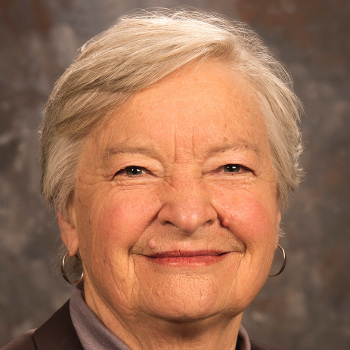We computer scientists—many of us—like to think of ourselves as professionals, as do doctors and lawyers, and police officers, and accountants. But there are definitions of “profession,” with criteria and expectations, that we fail to meet. Some of us don’t care. Some of us do. Are we ready, collectively, to confront the criteria? Do we want to be card-carrying members of a learned institution of service? Do we want to be alert to the call, “Is there a computer scientist in the house?”—ready to race forward with a circuit board?
That contingency, rather far-fetched, exceeds the prosaic implications. A profession is a self-governed group of individuals who purport to, and are considered by the public to, possess special knowledge and skills in a widely recognized body of knowledge derived from research, education, and training at a high level, and who apply this knowledge and exercise these skills under ethical standards in the interest of others8.
The history is interesting, and a vivid account would include sensational points8: Early egalitarian communities called guilds were denounced by Catholic clergy for their conjurations—the binding oaths sworn among the members to support one another in adversity, kill specific enemies, and back one another in feuds or in business ventures. The occasion for these oaths were drunken banquets held on December 265. Guilds, mostly for crafts, took hold during the High Middle Ages in Europe. The formal name of the Haberdashers’ Company, established 1448, is The Master and Four Wardens of the Fraternity of the Art or Mystery of Haberdashers in the City of London. London guilds (livery companies) numbered about 100 for years, yet new groups still emerge, such as the Worshipful Company of Tax Advisers, in 1995. (Guilds and similar bodies boast a rich history outside of Britain and Europe, which is not considered here.)
As guilds became entrenched, they fell out of favor, criticized for elitism, exclusion, and rent-seeking: the fact or process of seeking to gain larger profits by manipulating public policy or economic conditions; a redistribution rather than creation of wealth. Professions, then, are known to carry restrictions on freedom and obstacles to entry. Properties of modern professions include these, gathered from informal sources:
- Self-regulated by a governing body with authority over membership;
- Requiring education or training or apprenticeship;
- Licensed or credentialed, contingent on continuing education;
- Autonomous (practitioner makes decisions);
- Objective (expertise applied independent of potential profit);
- Work is done in the public interest, affecting human life, safety, or flourishing;
- Performance of pro bono work—free services for needy clients, and
- Duties that are anonymous or uncredited, such as reviewing.
Some of these may be honored by individuals in computer science, but the discipline has adopted none as established practices. The standards of training, certification, and governance would likely be seen as burdensome to a young coder working hard at a startup company, or trying to score investment from venture capitalists. Such measures would cramp the libertarian style of American high tech. …Hey, some of us go into coding because it’s fun, and we’re good at it. That’s all. Can’t that be enough? The lure of opportunity for experimentation and innovation in computing, for engaging in commerce and competing at a low entry cost, stifles any appeal of pride in the reliability and quality that would be fostered by these standards. The professional practitioner’s solitary self-discipline, the leisure sacrificed and rewards forgone in tedious refining and testing, also presents a challenge; see the ethical standards proposed in Hill2, adherence to which is often known to no one beyond the practitioner.
Naturally, ACM has hosted discussion on establishing professional expectations,1,4,6,7 including those in the ACM Code, most short of firm requirements. Some groups have taken steps toward professionalization of our trade:
PE certification in Computer Engineering
Administered by the National Council of Examiners for Engineering and Surveying, to few applicants, online, once a year.
TODO Community
For open source supporters, with regular meetings and open-source conferences3.
Yes, there are guilds!
Catholic information technologists can turn their vocation to good works through the St. Isidore Guild. In Britain, the Worshipful Company of Information Technologists (established 1987) is dedicated to industry, education, fellowship, and charity. My husband and I were fortunate, recently, to tour the WCIT Hall in the City of London and hear from Alan O’Connor, Beadle, and Andrea Lewis, Assistant to the Clerk. We left impressed by the scope of the mission and the range of activities that fulfill it. This is not a quaint costume party, but a socially responsible livery company demonstrating serious commitment to their worthy goals. Their Court, the governing body, includes distinguished British technologists in both public and private sectors, as does the general membership. Heading the latest list of events are a Space Technology Working Group and an Arts Panel, examples among many. And, irresistibly, the upcoming discussion to “explore cutting-edge technology designed to promote responsible AI solutions” is called the Ethical Dragons Quest. Readers who share the author’s vulnerability to the charm of the guild are left to pursue these matters on their own.
At the moment, our current American paradigm, that of large tech companies funded by venture capital aggressively developing and marketing AI products, does not seem conducive to respectability. We may congratulate ourselves that computing does not routinely embrace drunken banquets, killing enemies, and taking sides against outsiders as standard practices, but are we watching carefully enough for glimmers or reflections of those practices? Given the sensitivity and even danger of the human realms affected by computer science, we do need to address the establishment of our work as a profession, for sake of the public safety afforded by that status.
References
- Blumenthal, R. 2022. Is ethical computing ready to grow up?: (as other professions have). ACM SIGCAS Computers and Society 51:1.
2. Hill, R.K. 2024. The Software Sins of Bloat and Debt. BLOG@CACM, October 15, 2024.
3. Metz, C. 2014. How Medieval-Style Guilds Will Remake the Tech Behind Facebook and Google. WIRED, September 16, 2014
4. Morgan, J.N. 2005. Why the software industry needs a good ghostbuster. Communications 48:8.
5. Rouche, M. 1992. Private life conquers state and society. In Ariès, Philippe; Veyne, Paul; Duby, Georges (Eds.). A History of Private Life: From Pagan Rome to Byzantium. Vol. 1. Harvard University Press. pp. 419–. ISBN 978-0-674-39974-7.
6. Tannian, M. and Coston, W. 2021. The role of professional certifications in computer occupations. Communications 64:10.
7. Vardi, M. 2020. Advancing computing as a science and profession: but to what end? Communications 63:3
8. Wikipedia – Profession, 2024. Wikipedia, The Free Encyclopedia. Wikipedia, The Free Encyclopedia. 5 Nov. 2024. Web. 20 Nov. 2024.

Robin K. Hill is a lecturer in the Department of Computer Science and an affiliate of both the Department of Philosophy and Religious Studies and the Wyoming Institute for Humanities Research at the University of Wyoming. She has been a member of ACM since 1978.




Join the Discussion (0)
Become a Member or Sign In to Post a Comment